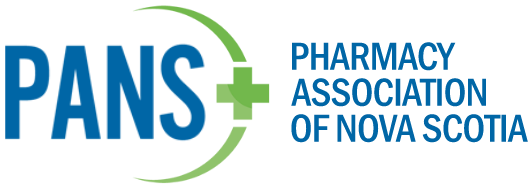Hospital pharmacist Steve Allen works in two areas. He’s the clinical pharmacist for cardiology in the Coronary Care Unit (CCU) and he works with the Hematology Department covering the Warfarin Clinic.
The CCU cares for patients with heart failure, rhythm problems, and patients who have had a heart attack. Steve "rounds" with the medical team, provides advice on appropriate drug therapy and dosage, helps to identify potential drug-related problems, and ensures patients can afford their medications after they leave the hospital.
The majority of patients Steve sees are those who have experienced a heart attack. Having a heart attack is a scary and confusing time. Most patients are started on at least five new medications plus many are already on medications before their heart attack. Steve educates patients on the importance of the new medications and the appropriate way to take them. He also reviews their previous medications along with the new ones and makes suggestions for adjustments, if required.
"Everyone is talking to a patient after they have a heart attack: dieticians, doctors, nurses, and pharmacists," says Steve."I try to keep things short and sweet."
He doesn't want to overwhelm them but it is important that they have a full understanding of the importance of taking their medications correctly. One of the keys to staying healthy after having a heart attack is taking the medication prescribed for you and as directed. Not doing so can increase the risk of another heart attack.
In addition to making sure the patient has all the relevant information about their medications, Steve also ensures they have the means to pay for them. Not being able to afford prescriptions is one of the top reasons patients do not take their medications as required. Steve may refer them to a social worker to help arrange drug coverage. If there is no coverage, Steve will recommend an alternative drug for the patient.
Steve also works in the Warfarin Clinic. Many refer to Warfarin as a blood thinner. Basically, it reduces your blood's ability to clot and, therefore, reduces the risk of blood clots in the legs or lungs, as well as clots that can lead to stroke. Patients on this medication must get blood work regularly checked. This test is called the international normalized ratio (INR). The INR indicates if the blood is clotting at the optimal rate for the patient at their current Warfarin dose. If the INR is too high, then the body's ability to stop bleeding when injured is greatly reduced. If it is too low, clots could form. Steve examines his patients' blood work results and makes changes to their Warfarin dosage, as needed.
It would seem quite straight forward but there are a lot of variables that can affect clotting and some patients’ INRs are difficult to maintain in the desired range. Depending on the patient's condition, medications, other illnesses, and any changes in therapy, they might need to get their INR tested every few days, weekly, or monthly. Patients who are very stable may only require an INR test every few months, but if anything changes in their health or medications they may need to resume more frequent testing. Steve encourages his patients to keep a journal by their phone and record all their INR results and Warfarin dose.
Some patients are not diligent in getting their blood work completed or knowing their test results. The Warfarin Clinic is a team effort with the pharmacist, the patient’s doctor and most importantly, the patient.
"If you don't' keep track of your medications and you don't get your blood work done, I can't help you," says Steve.
However, for those patients who follow his advice, there is a lot he can do.
"Warfarin can interact with a lot of things," says Steve. "But not all are major."
It's important for a patient to talk to their pharmacist any time they get a new medication and let them know they are taking Warfarin.
"Don't blindly take a pill," he says. "Take charge of your health."
In short, take your medications as directed, and, if you don't understand something, talk to your pharmacist or doctor.
Whether working in the Cardiology Department or in the Warfarin Clinic, Steve is just a phone call away for patients and doctors to get expert advice on medications.

